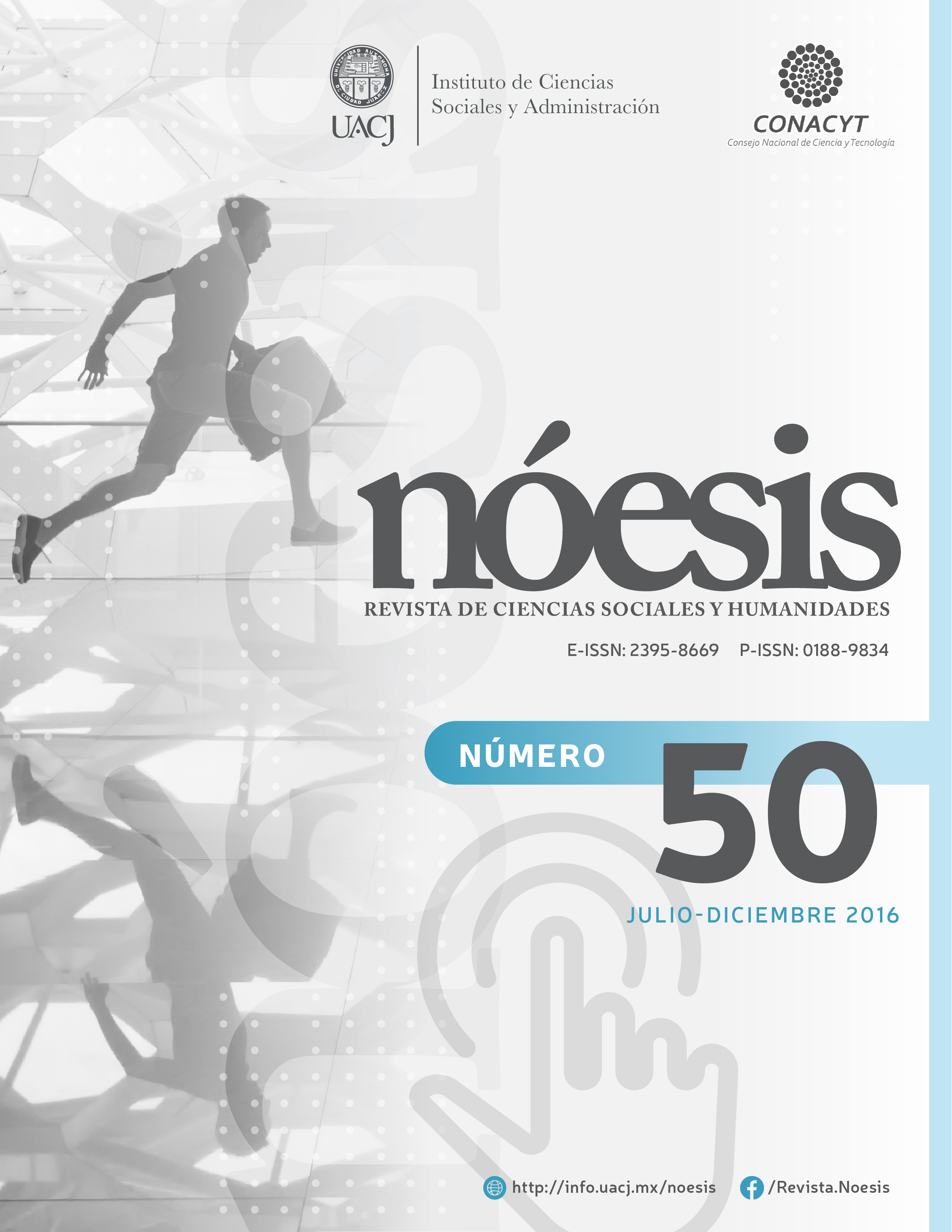La importancia de la investigación en la educación especial
Contenido principal del artículo
Resumen
Este presente artículo muestra varias razones para valorar la investigación educativa aplicada a la educación especial. Las razones son la descripción, la predicción, y la explicación de fenómenos que interesan a la educación especial. Se muestran ejemplos de cómo estas tres razones de la investigación están siendo y pueden ser aplicados en la educación especial. La descripción, predicción, y explicación son partes importantes de la práctica profesional en la educación especial y justificaciones para su uso son mostradas. Aunque los autores del presente manuscrito no toman una posición en cuanto a las políticas educativas, sí admiten que sería pertinente que los hacedores de decisiones tomaran en cuenta los resultados de investigaciones para la mejora de la práctica en la educación especial.
Descargas
Detalles del artículo

Esta obra está bajo una licencia internacional Creative Commons Atribución-NoComercial-CompartirIgual 4.0.
Citas
Allen, Mary, y Wendy Yen. 2002. Introduction to measurement theory. Long Grove, Illinois: Waveland Press.
American Psychological Association, National Council on Measurement in Education, y American Educational Research Association. 1999. Standards for educational and psychological testing. Washington, DC: American Educational Research Association.
Belcher, Wendy. 2009. Writing your journal article in 12 weeks. Thousand Oaks, California: Sage.
Brophy, Jere. 2001. Introduction. En Advances in research on teaching (vol. 8), compilado por Jere Brophy, pp. 1-23. Oxford: JAI Elsevier.
Cohen, Jacob. 1988. Statistical power analysis for the behavioral sciences (2ª ed.). Nueva Jersey: Lawrence Erlbaum Associates.
Crocker, Linda, y James Algina. 2008. Introduction to classical and modern test theory. Mason, Ohio: Cengage Learning.
Cumming, Geoff. 2012. Understanding the new statistics: effect sizes, confidence intervals, and meta-analysis. Nueva York: Routledge.
Darwin, Charles. 1859. En The origins of the species: by means of natural selection. Londres: John Murray.
Embretson, Susan y Steve Reise. 2000. Item response theory for psychologists. Mahwah, Nueva Jersey: Lawrence Erlbaum.
Ercikan, Kadriye y Wolff Roth. 2006. What good is polarizing research into qualitative and quantitative? Educational Researcher. 35 (5):14-23.
Farell, Michael. 2012. The effective teacher’s guide to autism and communication difficulties (2ª ed.). Nueva York: Routledge.
Ferrell, O. C., John Fraedrich y Linda Ferrell, 2005. Business ethics: ethical decision making and case,s (6a ed.). Boston: Houghton Mifflin Company.
Flanagan, Dawn, Samuel Ortiz y Vincent Alfonso. 2013. Essential of psycological assessment (3ª ed.). Hoboken, Nueva Jersey: John Wiley and Sons.
Gall, Meredith, Joyce Gall y Walter Borg. 2007. Educational research: an introduction (8ª ed.). Boston, Pearson.
Hair, Joseph, William Black, Barry Babin, Rolph Anderson, y Ronald Tatham. 2006. Multivariate data analysis (6ª ed.). Nueva Jersey: Pearson.
House, Ernest. 1991. Realism in research. Educational Researcher. 20 (6): pp. 2-9.
Jick, Hershell y James Kaye. 2003. Epidemology and possible causes of autism. The Journal of Human Pharmacology and Drug Therapy. 23 (12): pp. 1524-1530.
Mcmillan, James y Sally Schumacher. 2009. Research in education: evidence-based inquiry (7ª ed.). Nueva Jersey: Pearson.
National Center for Education Statistics. 2012. Digest of Educational Statistics 2011. http://nces.ed.gov/pubs2012/2012001.pdf. (16 de Junio de 2013).
Reynolds, Cecil y Elaine Fletcher-Jansen (eds.). 2004. Concise encyclopedia of special education: a reference for the education of the handicapped and other exceptional children and adults (2ª ed.). Nueva York: John Wiley and Sons.
Sarkar, Sahotra y Jessica Pfeifer. 2006. The philosophy of science: an encyclopedia. Nueva York: Routledge.
Schneider, Barbara, Martin Carnoy, Jeremy Kilpatrick, William Schmidt y Richard Shalvenson. 2007. Estimating causal effects using experimental and observational designs. Washington D.C.: American Educational Research Association.
Schön, Donald. 1983. The reflective practitioner. Nueva York: Basic Books.
Secretaria de Educación Pública. 2013. Sistema Educativo de los Estados Unidos Mexicanos: Principales Cifras 2011-12. (1 de junio de 2103).
Shavelson, Richard y Noreem Webb. 19. Generalizability theory: a primer. Thousand Oaks: California, Sage.
Szatmari, Peter. 2003. The causes of autism spectrum disorders. British Medical Journal. 326 (7382): 173-174.
Tremblay, Philippe. 2007. Special needs education basis: historical and conceptual approach. Ponencia presentada en Tivat, Montenegro.
Yu, Timothy; Chahrour MH, Coulter ME, Jiralerspong S, Okamura-Ikeda K, Ataman B, Schmitz-Abe K, Harmin DA, Adli M, Malik AN, D'Gama AM, Lim ET, Sanders SJ, Mochida GH, Partlow JN, Sunu CM, Felie JM, Rodriguez J, Nasir RH, Ware J, Joseph RM, Hill RS, Kwan BY, Al-Saffar M, Mukaddes NM, Hashmi A, Balkhy S, Gascon GG, Hisama FM, LeClair E, Poduri A, Oner O, Al-Saad S, Al-Awadi SA, Bastaki L, Ben-Omran T, Teebi AS, Al-Gazali L, Eapen V, Stevens CR, Rappaport L, Gabriel SB, Markianos K, State MW, Greenberg ME, Taniguchi H, Braverman NE, Morrow EM, Walsh CA. 2013. Using whole-exome sequencing to identify causes of autism. Neuron. 77 (23): 259-273.
Wallwork, Adrian. 2011. English for writing research paper. Nueva York: Springer.
Wechsler, David. 2002. WISC-IV. Escala de inteligencia de Wechsler para niños-IV. Buenos Aires: Pearson.

